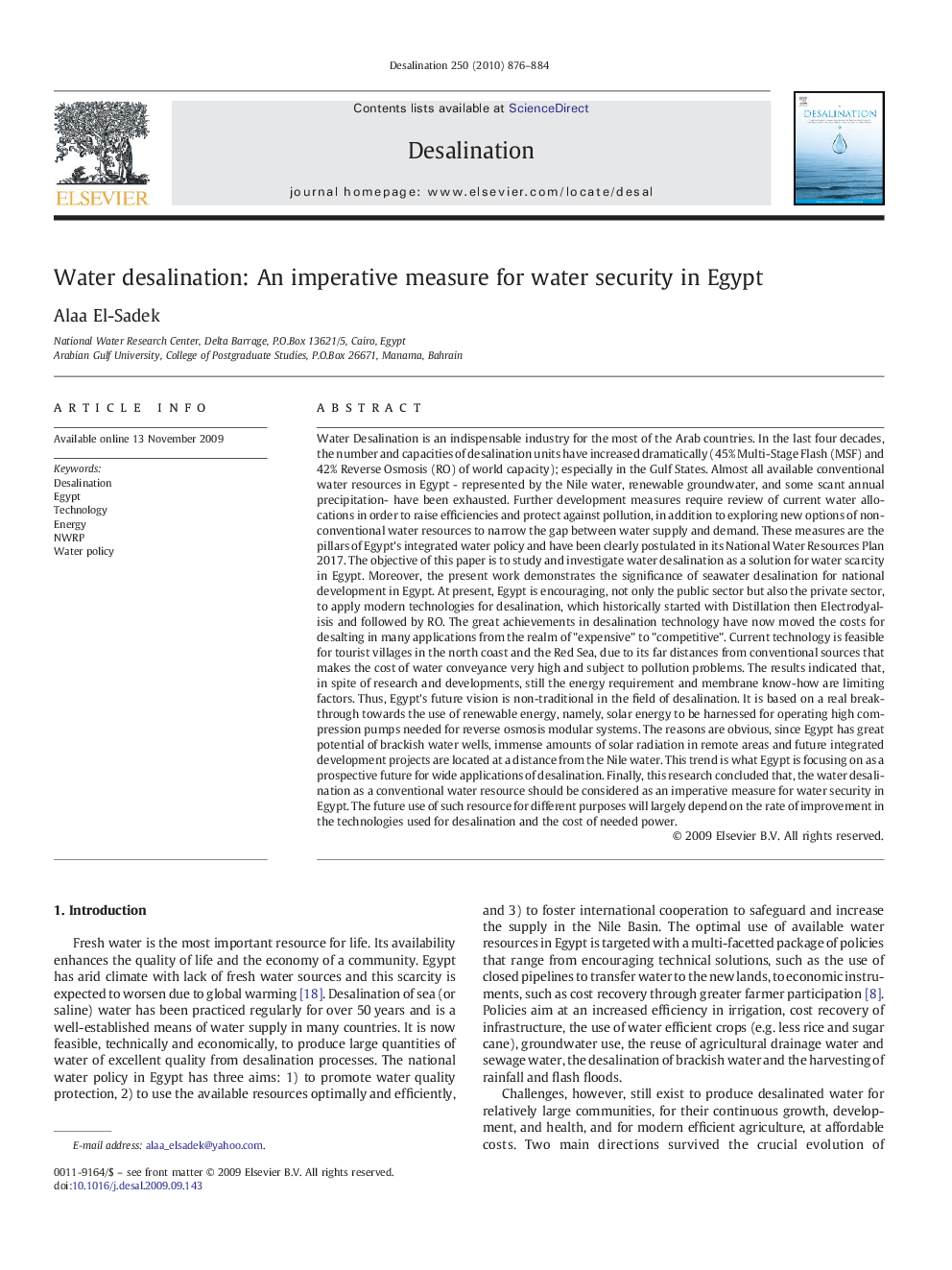| Article ID | Journal | Published Year | Pages | File Type |
|---|---|---|---|---|
| 625969 | Desalination | 2010 | 9 Pages |
Water Desalination is an indispensable industry for the most of the Arab countries. In the last four decades, the number and capacities of desalination units have increased dramatically (45% Multi-Stage Flash (MSF) and 42% Reverse Osmosis (RO) of world capacity); especially in the Gulf States. Almost all available conventional water resources in Egypt - represented by the Nile water, renewable groundwater, and some scant annual precipitation- have been exhausted. Further development measures require review of current water allocations in order to raise efficiencies and protect against pollution, in addition to exploring new options of non-conventional water resources to narrow the gap between water supply and demand. These measures are the pillars of Egypt's integrated water policy and have been clearly postulated in its National Water Resources Plan 2017. The objective of this paper is to study and investigate water desalination as a solution for water scarcity in Egypt. Moreover, the present work demonstrates the significance of seawater desalination for national development in Egypt. At present, Egypt is encouraging, not only the public sector but also the private sector, to apply modern technologies for desalination, which historically started with Distillation then Electrodyalisis and followed by RO. The great achievements in desalination technology have now moved the costs for desalting in many applications from the realm of "expensive" to "competitive". Current technology is feasible for tourist villages in the north coast and the Red Sea, due to its far distances from conventional sources that makes the cost of water conveyance very high and subject to pollution problems. The results indicated that, in spite of research and developments, still the energy requirement and membrane know-how are limiting factors. Thus, Egypt's future vision is non-traditional in the field of desalination. It is based on a real breakthrough towards the use of renewable energy, namely, solar energy to be harnessed for operating high compression pumps needed for reverse osmosis modular systems. The reasons are obvious, since Egypt has great potential of brackish water wells, immense amounts of solar radiation in remote areas and future integrated development projects are located at a distance from the Nile water. This trend is what Egypt is focusing on as a prospective future for wide applications of desalination. Finally, this research concluded that, the water desalination as a conventional water resource should be considered as an imperative measure for water security in Egypt. The future use of such resource for different purposes will largely depend on the rate of improvement in the technologies used for desalination and the cost of needed power.
